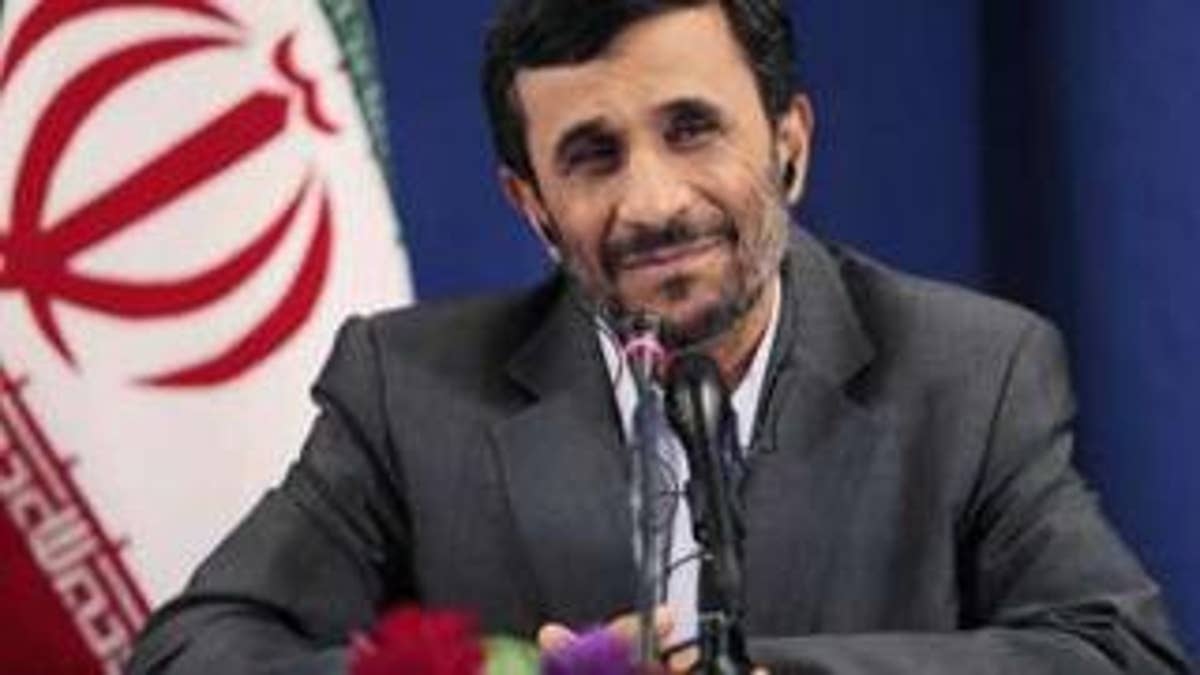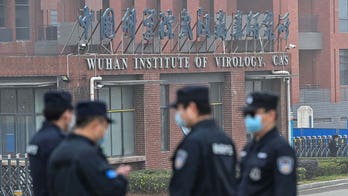
The international community is readier than ever to pressure Iran to end its suspected pursuit of a nuclear weapon, the White House said Monday, but some lawmakers expressed skepticism that upcoming talks with the Islamic Republic can produce any results.
Representatives from Iran are expected to meet in Geneva Thursday with delegates from Germany and the five permanent members of the U.N. Security Council, including the United States.
The meeting comes a week after Iran revealed the existence of a secret nuclear facility, which Western intelligence had been tracking since the Bush administration. And it comes just days after Iran conducted a series of missile tests.
White House Press Secretary Robert Gibbs called the tests "provocative in nature" and said the international community is in agreement on the need to deter Iran from building a nuclear weapon. He said the "least" Iran can do at the Thursday meeting is agree to "immediate, unfettered access" to the nuclear site at Qom.
"I think we are in a position to address the Iranian nuclear program, if the Iranians are unwilling to live up to their obligations, unlike ... we've ever been before," Gibbs warned.
"There has never been a stronger international consensus" that the problem has to be addressed, he said.
If the Geneva talks lead to a dead end, Obama is expected to seek tougher sanctions on Iran. But some officials question whether the talks have any chance of succeeding, and whether more sanctions can be tough enough to deter Tehran from its nuclear ambitions.
The administration also presumably needs Russia and China on board for any sanctions to be effective.
"My expectations (for the meeting) are very, very low," Michigan Rep. Pete Hoekstra, the ranking Republican on the House Intelligence Committee, told FOXNews.com. He said the disclosure of the Qom nuclear facility as well as the latest missile tests demonstrate a pattern of Iranian defiance.
"It doesn't surprise me, and that's why I won't be surprised if we have negotiations that do very, very little," he said, adding that the U.N. Security Council should pursue new economic sanctions "sooner rather than later."
"It always seems that they can't wait to show us that they have the capability of moving forward with their missile program or their nuclear program at the very time that we're trying to get them to talk," Sen. Jon Kyl, R-Ariz., said on NBC's "Meet the Press" Sunday. "And I think it illustrates the fact that at a certain point talking is counterproductive rather than productive, because time it not on our side."
Sen. Kit Bond, R-Mo., said on "FOX News Sunday" that Iran's track record of "lies" undermines any possible negotiations made during upcoming nuclear talks with U.S. officials.
"I think, as the 'Show Me State' senator, they've shown us enough, much of it through speeches by (Iranian President Mahmoud) Ahmadinejad saying, 'We're going to wipe Israel off the face of the Earth,'" Bond said, calling for tough economic sanctions.
"This is the moment of decision for Iran," said Sen. Dianne Feinstein, D-Calif., chairwoman of the Senate Intelligence Committee.
But both she and Defense Secretary Robert Gates downplayed the effectiveness or likelihood of a U.S.-led military strike on Iran -- should all else fail.
Gates said in an interview Sunday with CNN's "State of the Union" that "the reality is, there is no military option that does anything more than buy time."
Feinstein agreed, saying the country's nuclear plants are "in several different places," and a U.S. strike would require ground operations.
Gibbs said Monday that Iran is at a crossroads, signaling that Thursday's meeting could be either a turning point or a last straw.
"This is an important day and an important week for the Iranians. They have decisions to make," Gibbs said. "They have one of two paths they can take."
Gibbs said Iran can continue down the defiant path it is on or try to earn the confidence of the international community. He said that allowing full access to the nuclear site disclosed last week would help the nation "engage in full transparency" and give assurances that it will pursue only peaceful nuclear energy.




